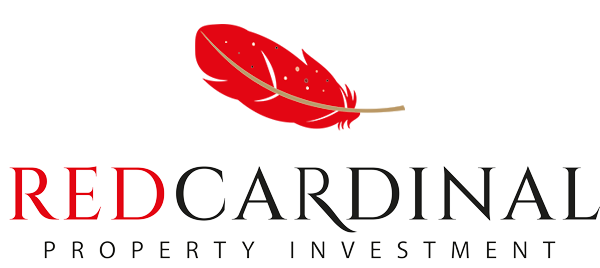Building Wealth with UK Property Investment: Maximizing Tax Efficiency
The UK property market has long been considered a safe and secure investment option, with the potential to generate substantial returns over the long-term. In recent years, it has become an increasingly popular choice for those seeking to build wealth through property investment. Not only can investing in UK property offer attractive returns, but property investment can also be a tax efficient strategy for building wealth.
To understand how UK property investment can be a tax-efficient tool for building wealth, it is important to first understand the basics of property investment. This includes identifying potential investment opportunities, securing financing, managing and maintaining the property, and generating rental income or capital appreciation.
Once you have a basic understanding of property investment, it is essential to consider the tax implications of investing in property in the UK. Here are some key tax-efficient strategies to consider when building wealth through UK property investment:
Capital Gains Tax (CGT)
CGT is a tax on the profit made when you sell an asset, including property. In the UK, there is a tax-free allowance for CGT, which is currently set at £12,300 per year. This means that if you sell a property for less than £12,300 more than you bought it for, you will not have to pay any CGT. Beyond this threshold, CGT is typically charged at 18% or 28%, depending on your tax bracket.
Income Tax
If you generate rental income from your investment property, you will be subject to income tax on this income. However, there are several expenses that you can deduct from your rental income to reduce your tax liability. These expenses may include mortgage interest payments, property maintenance and repairs, property management fees, and other relevant costs.
Stamp Duty Land Tax (SDLT)
SDLT is a tax that is charged on the purchase of a property in the UK. The amount of SDLT that you will be required to pay depends on the purchase price of the property, with higher rates applying to more expensive properties. However, there are several exemptions and reliefs available that may help to reduce your SDLT liability.
Limited Company Structure
One tax-efficient strategy for UK property investment is to hold your investment property within a limited company structure. This can provide several tax benefits, including reduced income tax rates and the ability to offset more expenses against rental income.
Inheritance Tax (IHT)
Inheritance tax is a tax that is payable on the value of your estate when you pass away. If you own property as part of your estate, this may be subject to IHT. However, there are several exemptions and reliefs available that may help to reduce your IHT liability.
UK property investment can be a tax-efficient strategy for building wealth over the long-term. By understanding the basics of property investment and the tax implications of investing in property in the UK, you can make informed decisions that maximise your returns while minimising your tax liability.
Understanding the tax implications of property investment
Investing in property can be a lucrative way to build wealth over the long term, but it’s important to understand the tax implications of property investment. In the UK, there are several taxes associated with property investment, including stamp duty, capital gains tax, and income tax. In this article, we’ll provide a detailed overview of each of these taxes and how they apply to property investment.
Property Investment Tax: Stamp Duty
Stamp duty is a tax on property transactions and is payable by the buyer. The amount of stamp duty payable depends on the purchase price of the property. For residential properties, stamp duty rates are as follows:
- Up to £125,000: 0%
- £125,001 to £250,000: 2%
- £250,001 to £925,000: 5%
- £925,001 to £1.5 million: 10%
- Above £1.5 million: 12%
For non-residential properties, the rates are slightly different. If you’re buying an investment property, you’ll need to factor in the stamp duty costs as part of your overall investment strategy.
Property Investment Tax: Capital Gains Tax
Capital gains tax is a tax on the profit you make when you sell an asset, including property. If you sell a property that has increased in value since you bought it, you may be liable to pay capital gains tax on the profit. However, there are certain exemptions and allowances that can reduce the amount of tax you need to pay. For example, you may be able to claim a tax-free allowance of £12,300 (for the tax year 2022-23), and there are certain reliefs available for landlords who sell a property that was previously their main residence.
Income Tax
If you’re earning rental income from a property, you’ll need to pay income tax on the profits. The amount of tax you need to pay will depend on your personal income tax rate and the amount of profit you’re making from the property. It’s important to keep accurate records of your rental income and expenses, as you’ll be able to offset certain expenses against your profits to reduce the amount of tax you need to pay.
Inheritance Tax
Inheritance tax is a tax on the value of your estate when you die, including any property you own. If the value of your estate is above the inheritance tax threshold (currently £325,000), your beneficiaries may need to pay inheritance tax on the property. However, there are certain exemptions and reliefs available, such as the main residence nil-rate band, which can reduce the amount of inheritance tax payable.
Council Tax
Finally, it’s important to factor in council tax when investing in property. Council tax is a tax on domestic properties and is payable by the occupier of the property. If you’re renting out a property, it’s usually the responsibility of the tenant to pay council tax, but it’s important to factor this into your rental income calculations.
Investing in property can be a tax-efficient way to build wealth over the long term, but it’s important to understand the tax implications of property investment. By considering the taxes associated with property investment, you’ll be able to make more informed investment decisions and maximise your returns. It’s also worth seeking professional advice from a tax specialist or property management company to ensure you’re fully compliant with all relevant tax laws and regulations.
Taking advantage of tax relief schemes
Investing in property can be a lucrative way to build wealth and generate passive income. However, it is important for investors to understand the tax implications of property investment to maximise their returns and minimise their tax liability. Fortunately, there are various tax relief schemes available to property investors in the UK that can help them take advantage of tax breaks and reduce their tax bill. In this article, we will explore three main tax relief schemes that can benefit property investors: the Rent a Room Scheme, the Furnished Holiday Lettings Scheme, and the Capital Allowances Scheme.
The Rent a Room Scheme is a tax relief scheme that allows property owners to rent out a furnished room in their primary residence and earn up to £7,500 per year tax-free. This can be a great option for homeowners who have an extra room and are looking for a way to earn some additional income. However, it’s important to note that this scheme only applies to the main residence and not to second homes or buy-to-let properties.
Another tax relief scheme available to property investors is the Furnished Holiday Lettings Scheme. This scheme is designed for property owners who rent out furnished holiday properties and offers several tax advantages, including the ability to offset certain expenses against rental income, such as mortgage interest, maintenance, and repairs. In addition, owners can claim capital allowances on items such as furniture, fixtures, and fittings, which can further reduce their tax bill.
The Capital Allowances Scheme is a tax relief scheme that allows property owners to claim tax relief on certain items within their rental properties. This includes fixtures and fittings, such as heating and lighting systems, as well as integral features such as lifts and escalators. The scheme allows property owners to claim tax relief on these items over a number of years, which can help to reduce their overall tax liability.
In addition to these tax relief schemes, property investors can also benefit from various other tax deductions and allowances, such as mortgage interest relief, property repairs and maintenance, and allowable expenses such as advertising and legal fees. However, it’s important to seek professional advice and ensure that you understand the tax implications of property investment before making any investment decisions.
In conclusion, property investment can be a tax-efficient tool for building wealth, and there are several tax relief schemes available to property investors in the UK. The Rent a Room Scheme, the Furnished Holiday Lettings Scheme, and the Capital Allowances Scheme are just a few examples of the tax breaks that property investors can take advantage of to reduce their tax liability and maximise their returns. However, it’s important to understand the tax implications of property investment and seek professional advice to ensure that you are making the most of your investment.
Utilising Limited Companies
A Tax-Efficient Way to Invest in Property
When it comes to investing in property, one of the most important considerations is tax efficiency. One way to achieve this is through incorporating a limited company. In this article, we’ll explore the advantages of using a corporate structure to manage property portfolios.
Benefits of Using a Limited Company
Reduced Tax Rates
One of the main advantages of using a limited company is the reduced tax rates. Corporation tax is currently set at 19% for profits up to £300,000 and 25% for profits above this amount. This is generally lower than the income tax rates for individual investors, which can be as high as 45%.
Personal Liability Protection: Another benefit of using a limited company is personal liability protection. Limited companies are separate legal entities, meaning that the company itself is liable for any debts or legal action. This protects the personal assets of the directors and shareholders.
Greater Access to Funding
Incorporating a limited company can also provide greater access to funding. Banks and lenders may be more willing to provide funding to a company, rather than an individual, as there is greater legal protection for the lender.
Estate Planning
Limited companies can also be a useful tool for estate planning. Shares in a limited company can be gifted or sold to family members, allowing for greater control over the transfer of assets.
Tax-Efficient Strategies for Property Investment
Using a Limited Company to Own Property
By using a limited company to own property, investors can take advantage of the lower corporation tax rates. The company can also claim expenses such as mortgage interest and property repairs, which can reduce the tax liability.
Capital Allowances
Capital allowances allow investors to claim tax relief on certain items in the property, such as fixtures and fittings. This can provide a significant tax saving, particularly for commercial property investments.
Incorporating a Management Company
Incorporating a separate management company can also be tax-efficient. The management company can provide services such as property maintenance and tenant management to the property-owning company. These services can be charged at a market rate, providing a tax-deductible expense for the property-owning company.
Furnished Holiday Lettings
The Furnished Holiday Lettings Scheme allows investors to claim various tax reliefs, including capital allowances and business rates relief. To qualify, the property must be available for short-term lettings for at least 210 days per year and actually let for at least 105 days per year.
Rent a Room Scheme
The Rent a Room Scheme allows investors to rent out a room in their home tax-free, up to a certain threshold. This can provide a useful source of income for investors with spare rooms.
Incorporating a limited company can be a tax-efficient way to invest in property. The benefits include reduced tax rates, personal liability protection, and greater access to funding. By utilising tax relief schemes such as capital allowances and the Furnished Holiday Lettings Scheme, investors can maximise their tax savings and build a profitable property portfolio. However, it’s important to seek professional advice to ensure that this strategy is right for you and your investment goals.
Property Investment Tax: Strategies for minimising taxes
Investing in property can be a great way to build long-term wealth, but it’s important to be aware of the taxes associated with property investment. Understanding the tax implications of property investment can help you make informed investment decisions and maximise your returns. In this article, we will provide a detailed overview of the various taxes associated with property investment in the UK, including stamp duty, capital gains tax, and income tax.
Stamp duty is a tax on property transactions, and the amount you pay depends on the value of the property. As of 2023, the stamp duty rates in England and Northern Ireland are as follows: no stamp duty is payable on properties up to £125,000; 2% on the portion of the property value between £125,001 and £250,000; 5% on the portion between £250,001 and £925,000; 10% on the portion between £925,001 and £1.5 million; and 12% on the portion over £1.5 million. In Scotland and Wales, different rates and thresholds apply.
Capital Gains
Capital gains tax is a tax on the profit you make when you sell a property that has increased in value. The amount of capital gains tax you pay depends on your taxable income and the size of your gain. As of 2023, the capital gains tax rate for residential property is 28% for higher rate taxpayers and 18% for basic rate taxpayers. However, you may be able to reduce your capital gains tax liability by taking advantage of the annual capital gains tax allowance, which allows you to make up to £12,300 tax-free gains each year.
Property Investment Tax: Income Tax
Income tax is a tax on the rental income you receive from your investment property. The amount of income tax you pay depends on your taxable income and the amount of rental income you receive. As of 2023, the income tax rates for rental income are 20% for basic rate taxpayers, 40% for higher rate taxpayers, and 45% for additional rate taxpayers. However, you can reduce your income tax liability by deducting certain expenses from your rental income, such as mortgage interest, property maintenance costs, and property management fees.
Tax Relief Schemes
In addition to these taxes, there are several tax relief schemes available to property investors. For example, the Rent a Room Scheme allows you to earn up to £7,500 per year tax-free by renting out a furnished room in your home. The Furnished Holiday Lettings Scheme allows you to offset certain expenses against your rental income and benefit from favourable capital gains tax treatment. The Capital Allowances Scheme allows you to claim tax relief on certain fixtures and fittings in your investment property, such as heating systems, lighting, and electrical installations.
Property Investment Tax: Limited Company
Incorporating a limited company can also be a tax-efficient way to invest in property. By using a corporate structure to manage your property portfolio, you can benefit from lower tax rates on rental income and take advantage of certain tax deductions and allowances. However, incorporating a limited company comes with additional costs and administrative requirements, so it’s important to weigh up the pros and cons before making a decision.
There are several strategies you can use to minimise taxes associated with property investment. For example, using a property manager can help you reduce taxable rental income by deducting management fees from your rental income. Timing property sales can also help you minimise capital gains tax liability by selling properties in tax years when your taxable income is lower. Additionally, keeping accurate records of your rental income and expenses can help you claim all the tax deductions and allowances you’re entitled to.
Property Investment Tax: Risks and limitations
Investing in property can be an attractive option for those looking to build wealth, particularly as it can be a tax-efficient tool for investors. However, it is important to understand the potential risks and limitations associated with this type of investment. In this article, we will discuss some of the potential risks and limitations that investors should be aware of when considering property investment as a tax-efficient tool.
One of the main risks of investing in property is the potential for market fluctuations. The value of property can be affected by a wide range of factors, including economic conditions, supply and demand, and changes in government policy. This can lead to fluctuations in property prices, which can impact the value of an investor’s portfolio.
Fluctuations
In addition to market fluctuations, changes in tax legislation can also impact the tax-efficiency of property investment. For example, recent changes to the stamp duty tax have made it more expensive for investors to purchase additional properties. Similarly, changes to the Capital Gains Tax (CGT) regime could impact the tax liabilities of property investors.
Property Investment Tax: Capital
Another potential risk associated with property investment is the high level of capital required to invest. Unlike stocks and shares, property investment typically requires a significant amount of capital to purchase a property, which can limit the accessibility of this type of investment for some investors.
Despite these potential risks and limitations, there are several strategies that investors can use to mitigate risks and maximise the tax-efficiency of property investment. For example, using a limited company to manage a property portfolio can provide tax benefits, such as lower tax rates on rental income and the ability to claim tax-deductible expenses.
Reduce Taxable Rental Income
Another strategy for minimising taxes is to use a property manager to reduce taxable rental income. Property managers can handle the day-to-day management of rental properties, which can help to reduce the amount of rental income that is subject to tax.
Timing property sales can also be a useful strategy for minimising capital gains tax. By holding onto a property for a certain period of time, investors can qualify for certain tax exemptions and reliefs that can reduce their tax liabilities.
Property investment can be a tax-efficient tool for building wealth, but it is important to understand the potential risks and limitations associated with this type of investment. By adopting the right strategies and staying up-to-date with changes in tax legislation, investors can maximise the benefits of property investment while minimising their tax liabilities.
Investing in property can be a tax-efficient way to build wealth in the UK. Understanding the tax implications of property investment is essential to ensure that investors make informed decisions and maximise their returns. Some of the taxes associated with property investment include stamp duty, capital gains tax, and income tax. Taking advantage of tax relief schemes such as the Rent a Room Scheme, the Furnished Holiday Lettings Scheme, and the Capital Allowances Scheme can also help investors to minimise taxes. Incorporating a limited company can be a tax-efficient way to invest in property, but it is important to understand the advantages and limitations of this strategy. Practical tips and strategies for minimising taxes include using a property manager, taking advantage of tax-deductible expenses, and timing property sales. However, it is essential to consider the potential risks and limitations associated with property investment, such as changes in tax legislation and market fluctuations. Seeking professional advice is critical when considering property investment as a tax-efficient wealth-building tool to ensure that investors make informed decisions that align with their financial goals.
Good Luck




